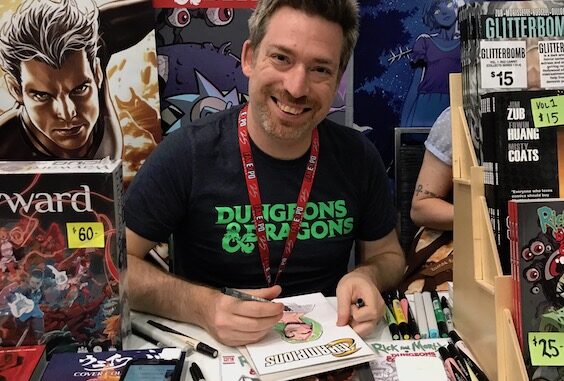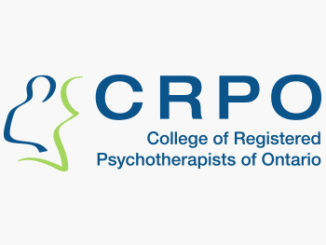
The weekend of July the 23-27 would have marked the 51st anniversary of San Diego Comic-Con, unarguably the biggest pop-culture event of the year. Many people go there to meet their favourite actors and creators, be among the first to hear big announcements, and above all, cosplay and bask in an often-crowded sea of fandom.
That didn’t turn out to be the case for this year, though. The coronavirus pandemic has forced many to stay at home under government orders, forcing many conventions dealing in popular culture in turn to cancel. For instance, San Diego was cancelled and replaced with a streaming event.
That in turn, has affected those who go to these events, from the organizers, to the attendees to the should-be guests and artists and businesses who set up shop at the con. Until the pandemic weakens or is over, they’re out of a place to interact with and talk to their fans and customers.
One person who’s been affected is comic writer Jim Zubkavich, better known in the community by his pseudonym Jim Zub. He’s the man behind several Marvel comics such as Avengers and Spider-Man. Zub also self-publishes his own comic titles such as Wayward as well as writes for the ever-popular role-playing game Dungeons & Dragons. And if that’s not tiring enough, he’s also a professor of animation at Seneca College, where as part of that school’s renowned Animation program, he helps budding animators hone their craft.
The dominoes start to fall

(Courtesy of Seneca College)
Jim Zub is a frequent character on the con circuit, attending Fan Expo Canada, where he’s a regular, among others. As a matter of fact, he says that he’s been to around 250 conventions since he started to attend them regularly in 2002. And yes, he’s also been to San Diego.
“I’ve been to San Diego Comic-Con 16 times and it’s been fun to see the show continue to grow and become more well known in the mainstream,” Zub tells SAY News in an email interview about the nerd mecca held in Southern California. “There are times when it can be overwhelming and I wonder why I’m going through it but, every single year I go there’s some kind of chance meeting or other crazy surreal moment I experience that could only have happened at Comic Con.”
One other con south of the border he’s been to is Emerald City Comic Con in Seattle. Originally slated to be held in March, it got delayed until summer of this year, then cancelled altogether. “It’s big enough to have pretty much all the creators and celebrities you want without getting to the overwhelming size of something like San Diego or New York,” Zub says. “For all the craziness Emerald has, comics still feel central to the whole experience and that’s important to me too.”
Closer to home, the Toronto Comic Arts Festival, held a week before the Victoria Day weekend at the Toronto Reference Library, was sacked back in March when it became clear things weren’t going the way the organizers planned. TCAF, a free-admission event, is unique in which Zub praises that event for its focus on comics as an art form rather than for the greater franchise ecosystem they’re a part of. (Disclosure: TCAF is sponsored in part by Seneca’s School of Creative Arts and Animation.)
“It’s free to the public, jam-packed with creators from all over the world, and the focus is almost entirely on creators and books,” he says. “The people who come out for that festival absolutely love books and they’re eager to discover new things, so it has a really different energetic feel in and around the comic medium.”
Meanwhile, Fan Expo has moved its 2020 event, usually held around the end of August, to November 6-8, while also scaling its size down and imposing an admission cap to ensure physical distancing. The announcement was met with mixed reaction from the Internet, some expressing doubt that the con could be held safely and with reduced crowds in late fall/early winter, especially with a predicted fall surge in COVID-19 cases.
“A period of ‘mourning’…”
The fact that the summer of 2020 was turning to be void of cons hit Zub really hard, he told us.” I know it sounds a bit dramatic, but I already went through a period of ‘mourning’ for the conventions and travel I’d planned and couldn’t carry through on.”
He also knows quite a few fellow artists will be suffering. “Many have made selling material or doing commissions at conventions a huge part of their income, so it’s tough seeing them scramble to try and fill in that gap.”
But he knows that the reasoning for all of this will save many lives from a silent killer. A crowded convention centre is, after all, a hotbed for the spread of respiratory diseases, and social distancing is obviously hard to do at cons, especially in the notorious lineup. In fact, anyone in the con community will know quite a lot about “con crud.” (Look it up.)
There’s also the toll of the pandemic on creativity itself.
Comic writing is a solidary work, Zub explains, and that gives him quite a lot of liberty in his work schedule, provided he’s not lecturing at Seneca. (He does much of his writing in the evening, when he’s not teaching at animation school.)
Still, the deluge of COVID-19-related headlines coming in from all over the world seem to be a distraction to what he should be doing. Zub says, “Creative work feels less important and the kind of ‘flow’ I’m used to getting into where I can produce a consistent amount of work each day isn’t as easy to pull off right now.”
If you can’t come to the con, let the con come with you
With cons pretty much being dead for the summer of 2020, many people and organizations have been putting on online streaming events in order to fill the hole left by the lack of a summer con season. One of the key aims was to ensure that creators and retailers continue to be supported during these trying times.
One such event was the recent Comic-Con@Home – as the event that replaced the physical San Diego con was called – which was streamed worldwide on YouTube and other platforms. Hosted by news site IGN, it consisted of mostly pre-recorded panels conducted via Zoom. You can watch the entire Sunday stream above.
There was also Be Our Heroes, Canada, organized by four comic-book shops in Ontario and live-streamed for free on Facebook. The event featured well-known Canadian comic-book writers and artists such as Chip Zdarsky and Jason Fabok. Zub himself presented a panel at that event on how to write comics (embedded below).
Another one, called Metaverse, is being put on by ReedPop, the company behind ECCC as well as the New York Comic Con (which also announced a transition to an online streaming event instead of an in-person con) among others, and will also stream live on YouTube over this weekend (August 13-16).
And there are plenty more. Mainframe Comic Con, which also happens over this weekend (though it begins in Friday the 14th), promises actual live panels. DC Comics also announced their own virtual gig called DC FanDome, happening later this month on the weekend of the 22nd.
Zub obviously appreciates these events happening but he says they’re “also a far cry from the real thing.” One of the issues with these virtual meetups is that there obviously isn’t any human interaction. “I’ve tried to stay in touch with industry friends using Discord or Zoom and it’s nice as a stop gap, but it’ll never be a full replacement for the in-person convention experience.”
There’s also the issue of everyone already being glued to the screens during the pandemic, which Zub says makes these streaming cons ”also a bit exhausting to try and cram in more of that even when it’s being done for all the right reasons.” (Comic-Con@Home was deemed a bust by a few blogs after it took place.)
That, Zub believes, could cause some issues if the pandemic hits hard longer than usual.
“If we can’t get the virus under control then they’ll definitely become the norm, but that may also hinder their expansion because they won’t feel as special.”
But for all the concerns he has for these streams, Zub does enjoy being on them.
“It was a fun experience!” Zub described being on Be Our Heroes. “Getting the chance to talk about the comic-writing process, both for the people who tuned in live and for people who watched the feed after, was nice. I enjoy demystifying some of that creative process, hopefully giving people a greater appreciation of what goes into creating comics.”
So, when do we come back?
Zub is waiting to see when thing start becoming much safer before hitting the con circuit once again.
“If Canada gets things well under control and another country with minimal infections and strong health systems in place reached out, I’d absolutely consider it.”
He’s also concerned about how cons return. “Any attempts to try and run these events prematurely will absolutely shake people’s confidence and probably destroy the convention industry as a whole,” he said. “Pretending that we can just carry on as usual is not going to solve it.
It’s a major issue shared by everyone. IndieWire notes the potential for what could be best described as a hybrid con (both in-person and streaming online) and that some potential guests may not attend SDCC next year if they feel unsafe.
Creators and retailers need help!
Of course, even with or without virtual events, businesses and creators still need the support of their customers and fans. That was the impetus for Be Our Heroes Canada. As Zub put it, “Creative industries live or die based on fan support and that’s more important than ever when conventions aren’t running…”
Zub also says that’s made crowdfunding for creators more important than ever.
“Direct support through crowdfunding or platforms like Patreon have become a real lifeline for independent creators and even larger companies are realizing that they’ll need to keep adapting in order to survive these strange times,” Zub told us.
He also thinks we should also spread the word that artists are still creating in the midst of the pandemic. A share on social media may be more important than ever. “Sharing the work you love and helping get the word out about it is a powerful form of advocacy that can lead to increased sales over the long haul,” Zub says. “Those personal recommendations can go a long way.”
Has quarantine impacted your regular day job? Do you have an art side hustle? Got patreon? Tweet me and tell me 1. your day job 2. about your creative side job and 3. the link to your Patreon. I’ll RT as many as I can!
— Travis McElroy, The Internet’s Best Friend (@travismcelroy) March 17, 2020
It might be exactly why TCAF came out with what it calls a “Digital Showcase” in lieu of a show this year. It’s a book featuring the works of some the artists who should have been at TCAF. It can be viewed online via Gumroad.
If you want to see Zub in a virtual con panel, he’ll be part of Metaverse for a “Rick and Morty vs. Dungeons & Dragons session.” It just so happens that he co-authored that game. It will stream at 8:15 p.m. E.T. on the ReedPop/NYCC YouTube channel. (It will be embedded below after the livestream.) “I ran the game last year at [ECCC] and [NYCC] and both times it was a really wild experience with all kinds of unexpected hilarious moments,” Zub described his experience with the game. “I can’t wait to see how this one goes.”




Be the first to comment